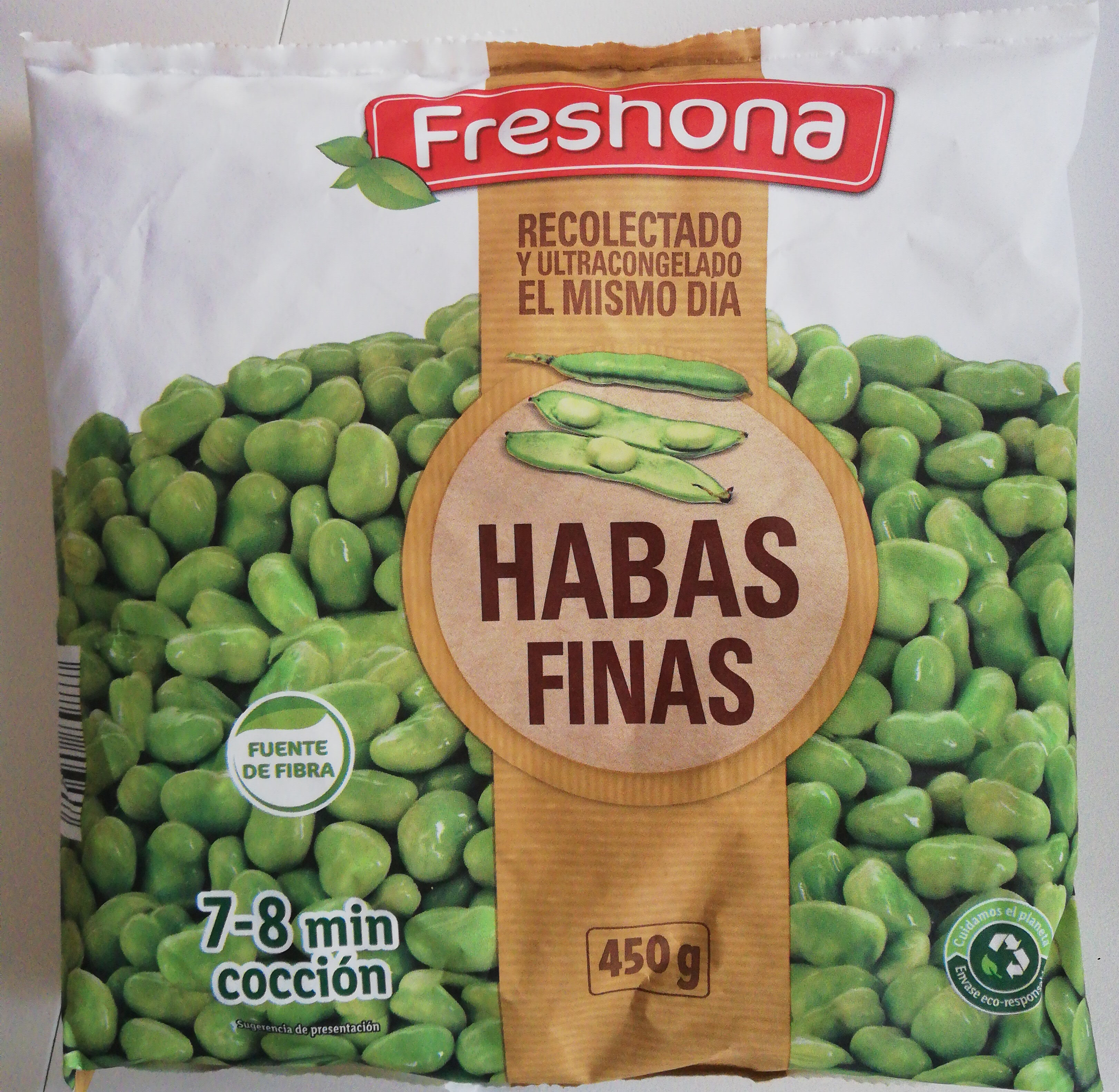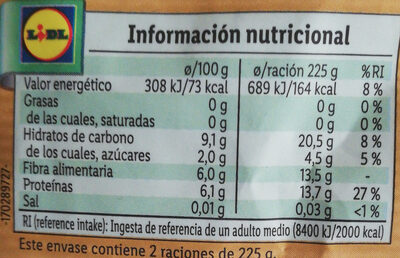Habas congeladas - Freshona - 450 g
Ambiguous barcode: This product has a Restricted Circulation Number barcode for products within a company. This means that different producers and stores can use the same barcode for different products.
×
This product page is not complete. You can help to complete it by editing it and adding more data from the photos we have, or by taking more photos using the app for Android or iPhone/iPad. Thank you!
×
Barcode: 20318987
Common name: Habas congeladas
Quantity: 450 g
Packaging: Frozen, es:Bolsa de plástico
Brands: Freshona
Categories: Plant-based foods and beverages, Plant-based foods, Fruits and vegetables based foods, Legumes and their products, Vegetables based foods, Frozen foods, Vegetables, Frozen plant-based foods, Frozen legumes, Frozen vegetables, Broad beans, Frozen broad beans
Labels, certifications, awards: Vegetarian, Source of fibre, Vegan
Origin of ingredients: Spain
Manufacturing or processing places: Spain
Traceability code: ES 21.17952/NA C CE, FABRICANTE Y ENVASADOR:, CONGELADOS DE NAVARRA S.A.
Stores: Lidl
Countries where sold: Spain
Matching with your preferences
Environment
Carbon footprint
Packaging
Transportation
Report a problem
Data sources
Product added on by javichu
Last edit of product page on by 5m4u9.
Product page also edited by dieta2022, ecoscore-impact-estimator, kiliweb, musarana, openfoodfacts-contributors, packbot, thaialagata, yuka.YmZrUlR2d3VtNmhSdjhNNW9oK08xTmN1MlpTWmMxK1JNZUVWSVE9PQ.









